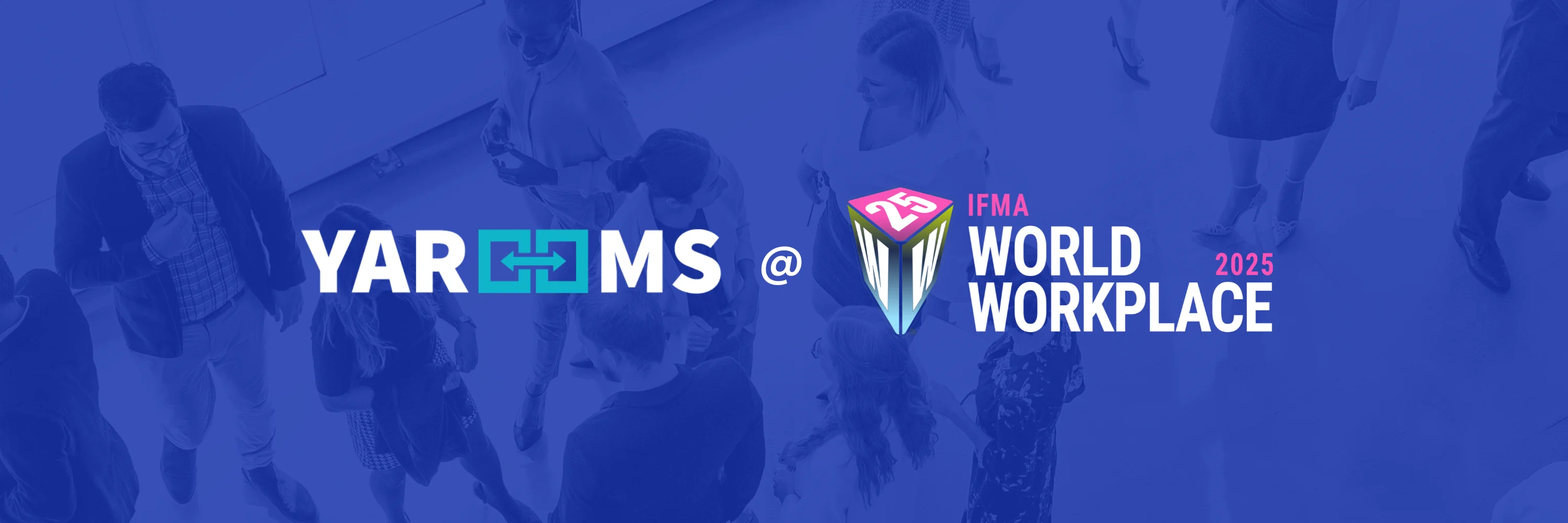Our insights about the future of work
 Featured
FeaturedWorkplace Technology
Hot Desk Booking in Microsoft Teams: 2 Options Explained
Nov 4, 2025
·
14 min read
 Featured
FeaturedHybrid & Remote Work
Return-to-Office Without the Pushback: Tips for a
Jun 25, 2025
·
15 min read
Explore the most popular topics
Workplace Experience
View all articles
Workplace Experience
Learning and Knowledge Sharing: A Modern Incentive to Come
Jan 21, 2025
·
8 min read

Workplace Experience
Boost Employee Morale by Streamlining Access to Workplace
Nov 12, 2024

Workplace Experience
Creating a High-Performing Space That Employees Can Do
Oct 22, 2024
·
6 min read

Workplace Experience
Data: The Foundation of High-Impact Workplace Experience
Sep 24, 2024
·
16 min read
Workplace Management
View all articles
Workplace Management
Average Office Size: How Much Square Feet per Employee Do
Jan 6, 2026
·
15 min read

Workplace Management
Desk Sharing Ratio: What's the Optimal Number? [2026
Jan 6, 2026
·
12 min read

Workplace Management
You Have the Numbers. Now What? 5 Exercises to Turn
Jun 10, 2025
·
12 min read

Workplace Management
Aligning IT and Workplace Teams in the Modern Office
May 13, 2025
·
14 min read
Employee Well-being
View all articles
Employee Well-being
Build an Employee Experience Strategy That Actually Works
Jan 24, 2024
·
20 min read

Employee Well-being
The Power of Positive Employee Well-being Initiatives
May 30, 2023
·
7 min read

Employee Well-being
Smart Workplace Technology and Employee Well-Being
May 4, 2023
·
7 min read

Employee Well-being
Why Employers Need to Talk About Mental Health at Work
Oct 10, 2022
·
6 min read
Facility Management
View all articles
Facility Management
Managing Corporate Event Spaces: 8 Practical Tips That Work
Apr 24, 2025

Facility Management
Workplace Services Meaning: Understanding the Services
Nov 5, 2024

Facility Management
8 Useful Tips for Managing Multiple Office Locations
Feb 21, 2024
·
8 min read

Facility Management
10 Essential Facility Manager Skills to Master in 2024
Feb 14, 2024
·
7 min read
Sustainability
View all articles
Sustainability
What Is the 'S' in ESG?
Jan 23, 2024
·
12 min read

Sustainability
Sustainable Office Space: Strategies for a Greener Workplace
Nov 8, 2023
·
8 min read

Sustainability
Sustainability Data Quality in Real Estate: 6 Challenges
Oct 12, 2023
·
8 min read

Sustainability
Remote Work Carbon Footprint: Why Companies Should Take It
Aug 10, 2023
·
9 min read
Workplace Technology
View all articles
Workplace Technology
Desk Booking Software Pricing: Compare Top Platforms in
Feb 3, 2026
·
12 min read

Workplace Technology
Best Workplace Management Software in 2026: Compare 7
Jan 6, 2026
·
14 min read

Workplace Technology
Best Meeting Room Technology: 20+ Great Tools for 2026
Jan 5, 2026
·
15 min read

Workplace Technology
Meeting Room Booking System Price Guide for Buyers [2026
Jan 5, 2026
Hybrid & Remote Work
View all articles
Hybrid & Remote Work
Hybrid vs Remote Work: A Comprehensive Comparison for 2026
Jan 5, 2026
·
18 min read

Hybrid & Remote Work
Return-to-Office Without the Pushback: Tips for a
Jun 25, 2025
·
15 min read

Hybrid & Remote Work
Hybrid Work Analytics – The Key to an Optimized Hybrid
Feb 26, 2025
·
9 min read

Hybrid & Remote Work
The Hybrid Work Schedule Calendar: Making Flexibility
Feb 19, 2025
Human Resources
View all articles
Human Resources
41% of Employees Would Quit Without Hybrid Work: A
Jan 22, 2025
·
7 min read

Human Resources
HR Trends and Priorities in 2025: What's Changing in
Nov 26, 2024
·
13 min read

Human Resources
5 Expert Tips for HR Process Improvement
Nov 13, 2024
·
18 min read

Human Resources
7 HR Leadership Strategies for a Thriving Hybrid Work
Nov 5, 2024
·
17 min read
Office of the Future
View all articles
Office of the Future
Experiential Workplaces: A Revolution in Office Design
Jan 14, 2025
·
10 min read

Office of the Future
The Future of the Office: 70% of Companies to Adopt
Jan 6, 2025
·
18 min read

Office of the Future
What's Next: Workplace Leaders Share Their Key Priorities
Dec 29, 2024
·
12 min read

Office of the Future
What Is a Huddle Room and How to Set It Up?
Sep 30, 2024
·
22 min read
News from YAROOMS
View all articles
News from YAROOMS
YAROOMS and Neat: Bringing Real-Time Room Booking and
Feb 1, 2026
·
3 min read

News from YAROOMS
Reshaping the Public Estate: Insights from The National FM
Sep 24, 2025
·
6 min read

News from YAROOMS
YAROOMS at the National Facilities Management in the
Sep 10, 2025
·
2 min read

News from YAROOMS
YAROOMS is Heading to IFMA World Workplace 2025
Aug 19, 2025
·
4 min read
Ready to see the big picture?
Managing spaces, resources, or team collaboration—we've got you covered.
